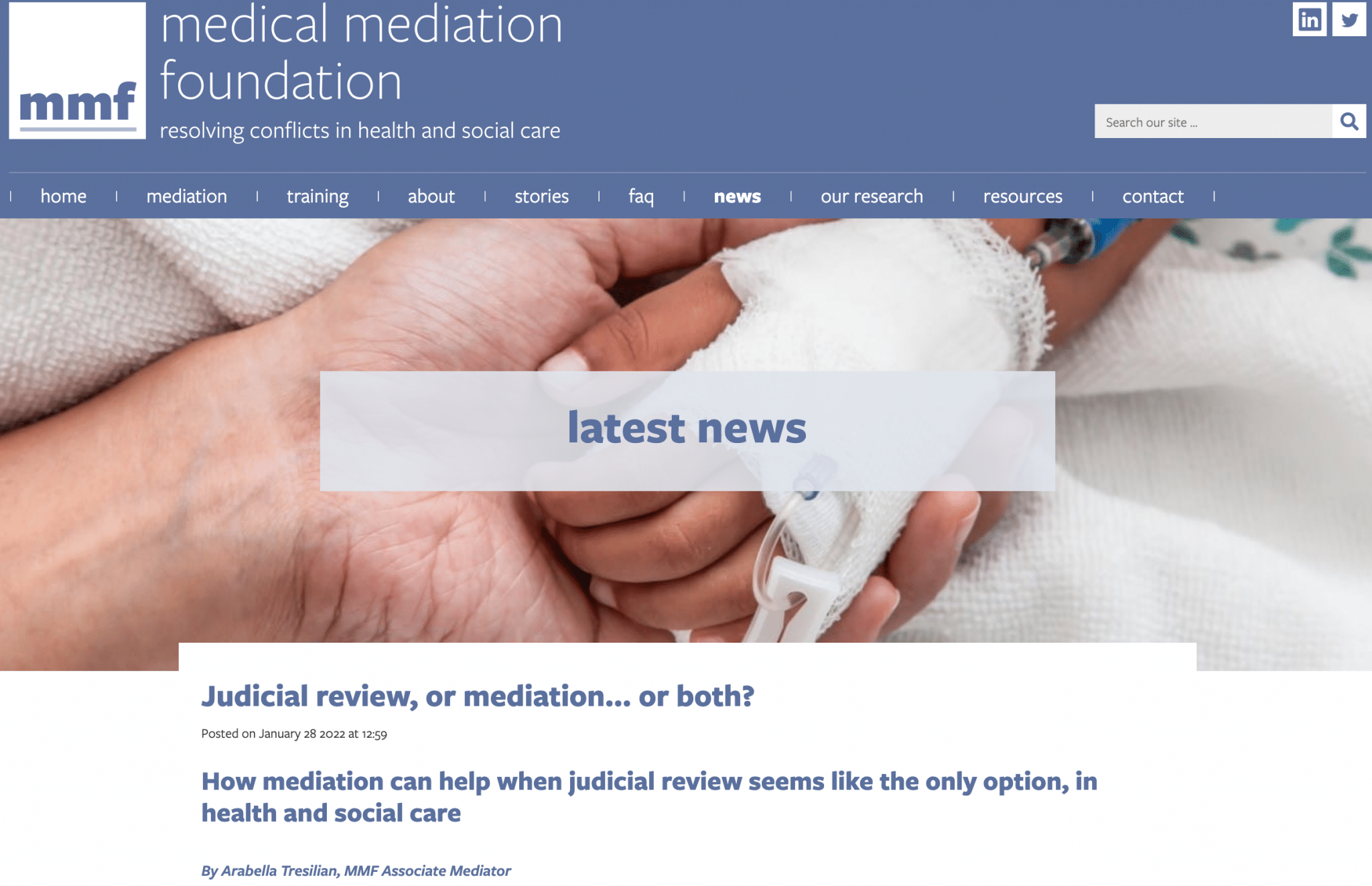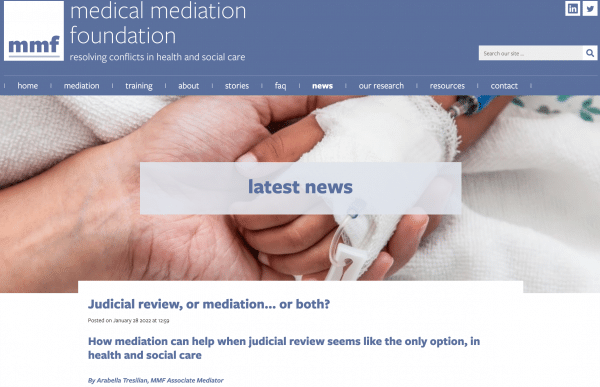Arabella is an Associate Mediator and Trainer with the Medical Mediation Foundation, where she mediates judicial review cases. Here is a taste of her article on the topic – published by the Medical Mediation Foundation – read the full article by clicking here.
Judicial review, or mediation… or both?
How mediation can help when judicial review seems like the only option, in health and social care
By Arabella Tresilian, MMF Associate Mediator
The last two years of pandemic have directed a spotlight on the world-class services provided to the UK by our health and social care providers, and on the dedicated professionals who make those services available to us.
At the Medical Mediation Foundation, we have also seen at close hand how the pressures of Covid-19, with their consequent strains on systems and resources, have resulted in disputes and conflicts, causing distress for all involved, whether patient, professional, relative or carer.
At times, the courts are called upon to resolve disputes about the decisions and actions of health and social care organisations in the public sphere. Mediation is a dispute resolution option that can be used effectively in health and social care, before, during or after court proceedings.
Here we encourage public service professionals, public law practitioners and individuals to explore the efficacious option of mediation and the role it can play, with regards to judicial review.
What is judicial review in health and social care?
Judicial review is a type of court proceeding in which a judge reviews the lawfulness of a decision or action made by a public body (1). Judicial review can be used when a public authority has:
- acted in a certain way
- failed to act in a certain way
- made an unlawful decision
Patients, service users, relatives, carers, suppliers or partner organisations may call on the services of specialist legal advisors and decide to initiate a judicial review to challenge the decisions made by a health and social care provider, or other public body.
Broadly, a decision or action by a public body can be overturned – urgently if required – on the grounds of ‘illegality’, ‘procedural unfairness’, ‘irrationality’, or where it is incompatible with an individual’s human rights. Examples might include:
- An NHS hospital makes a decision to put a ‘do not resuscitate’ on a patient’s note without discussing it with the patient or their family
- A clinical commissioning group refuses to fund a certain treatment which the patient/ family believes they have a right to
- A local authority makes a decision that does not comply with its own internal rules or policies
***Published by the Medical Mediation Foundation – read the full article here***






